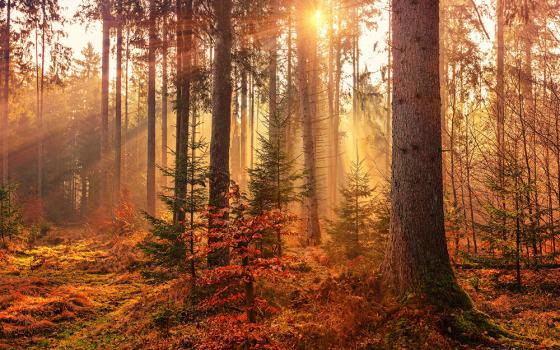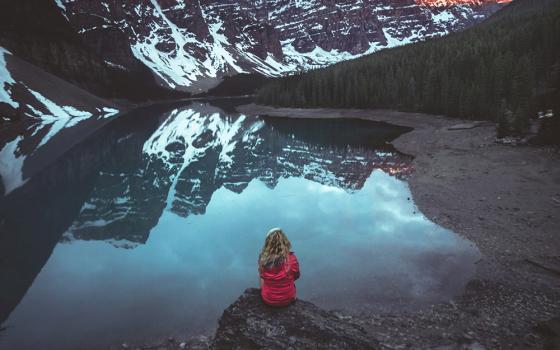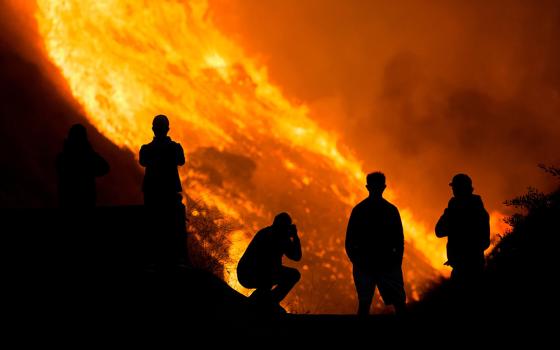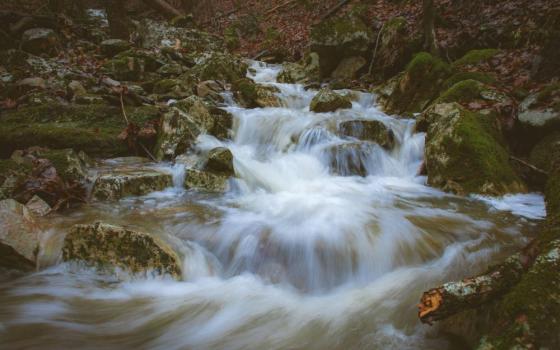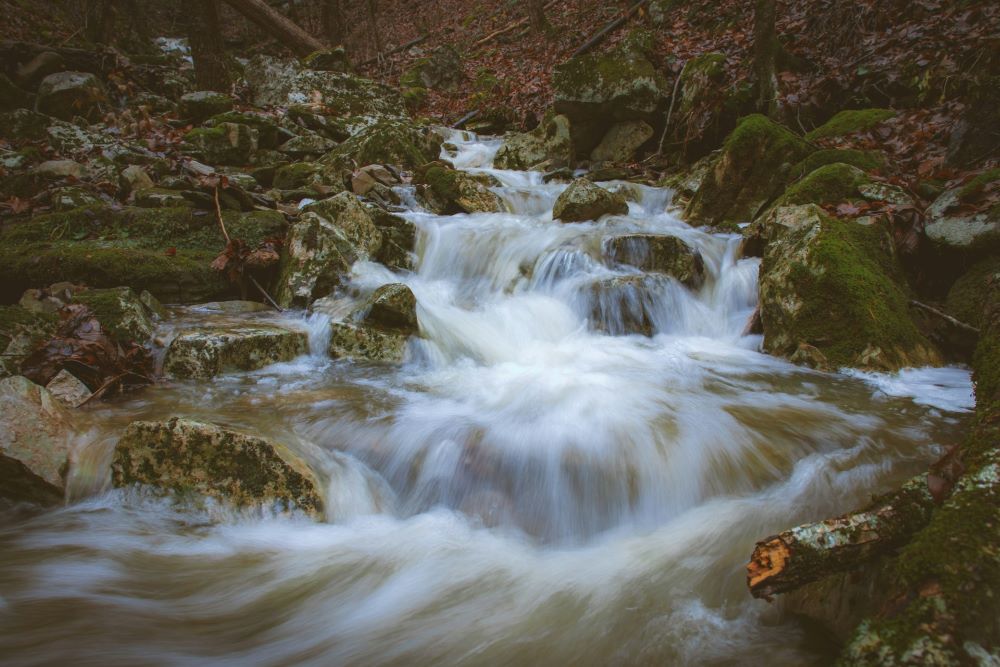
(Unsplash/Brice Cooper)
We're now in the second week of the Season of Creation.
From Pope Francis celebrating the World Day of Prayer for Creation during the Sunday Angelus on Sept. 1, to a 4 a.m. (!) ecumenical walk in the Philippines, so much exciting action has already taken place.
During the global online ecumenical prayer service launching the Season of Creation, Bishop Gerardo Alminaza of the Catholic Bishops Conference of the Philippines reminded us, "The song of Creation sings as a sign of God's creative love."
He then asked, "Do we recognize ourselves as part of God's creation? Do we recognize that nature is not something apart from us, and that we are nature?"
Perhaps as you explored the first invitation as part of our Season of Creation nature therapy walk you could sense our interconnection with creation through the senses and elements.
This week, I connected with the gift of creation in some unexpected moments. Coming from a doctor's visit, as I sat at a stoplight, I took a deep breath as I looked at the blue sky and gave thanks for the gift of air and the way God always envelopes me in care. I was reminded of something that the meditation teacher Jon Kabat-Zinn says, "If you are breathing there is more right with you than wrong with you."
I wonder, what was the first invitation like for you?
As part of our journey of ecological conversion, the Season of Creation is a privileged time to bring special attention to our relationship with creation — to notice that we are part of God’s creation.
As Pope Francis reminds us in his encyclical "Laudato Si', on Care for Our Common Home," with all creation we are "linked by unseen bonds and together form a kind of universal family, a sublime communion which fills us with a sacred, affectionate and humble respect."
Can we continue to journey together in our nature therapy walk with openness to soften the boundaries between us and all of creation? Let us ask for the grace to glimpse the interconnectedness that God sees in all God's loving works.
This week's invitation: 'What's In Motion'
Let us continue on our nature therapy walk with our next invitation. This invitation is called “What's in Motion.”
The instructions are simply that: to notice what is in motion using your awakened senses.
In a traditional forest therapy walk, you would be guided to walk along a path in silence with the invitation to pay attention to what is moving around you.
For the purpose of our Season of Creation therapy walk, you are also encouraged to do this in the forest or in nature. Take a section of a path and allow yourself to wander where your senses lead you, even if it is off trail a bit.
Let your body decide what slow means to you, to go at a pace to allow yourself to pay attention. Give yourself permission to linger with something that catches your attention, to squat down and explore or smell or touch.
Advertisement
Remember, we are not trying to get anywhere. We are simply noticing, shifting our attention from our busy mental activity to our physical senses.
In some ways, it is similar to last week's invitation to notice the pleasures through our five senses. This week, however, we are attuning to movements, subtle and obvious, in our field of awareness. If you find your mind starts to wander, just bring your attention back to what's in motion.
If you do not have easy access to a park due to time or location, experiment with this invitation of "What's in Motion" in your daily life. This could be walking to get your mail, with your dog along the sidewalk, on the way to work. The key is to bring intention to your surroundings by slowing down and noticing what is in motion with your senses as your guide.
Self-centeredness to other-centeredness
This is a deceptively simple but powerful exercise. It is my go-to when my mind is distracted from my present surroundings, especially when they are beautiful.
One time while on a walk with my daughter and our puppy in the woods, I caught myself going down a rabbit hole of anxious thinking, despite being enveloped in the wildness of a state park.
On the spot, I decided that while my daughter was cracking ice in the small creek I would notice what was in motion around me. I took in my surroundings and saw slight movements of the trees around me, the trickling of some water near me. Slowly, I could feel my mind settle as I shifted my attention from my own internal preoccupied landscape to the beauty around me. My heart was open and I was filled with gratitude for the gift of creation.
In a subtle way, this practice can be an invitation to move from self-centeredness to other-centeredness, something Pope Francis talks about in Laudato Si':
We are always capable of going out of ourselves towards the other. Unless we do this, other creatures will not be recognized for their true worth; we are unconcerned about caring for things for the sake of others; we fail to set limits on ourselves in order to avoid the suffering of others or the deterioration of our surroundings. Disinterested concern for others, and the rejection of every form of self-centeredness and self-absorption, are essential if we truly wish to care for our brothers and sisters and for the natural environment.
Often when I begin to explore this invitation of "What's in Motion," I'm convinced that nothing is in motion. Upon slowing down and attuning to my surroundings, I realize nothing could be further from the truth. I begin to see a bird fly through the branches. Or the slight tremor of a blade of grass. This leads me to see the single ant crawling beneath the grass on a mission I wish I knew.
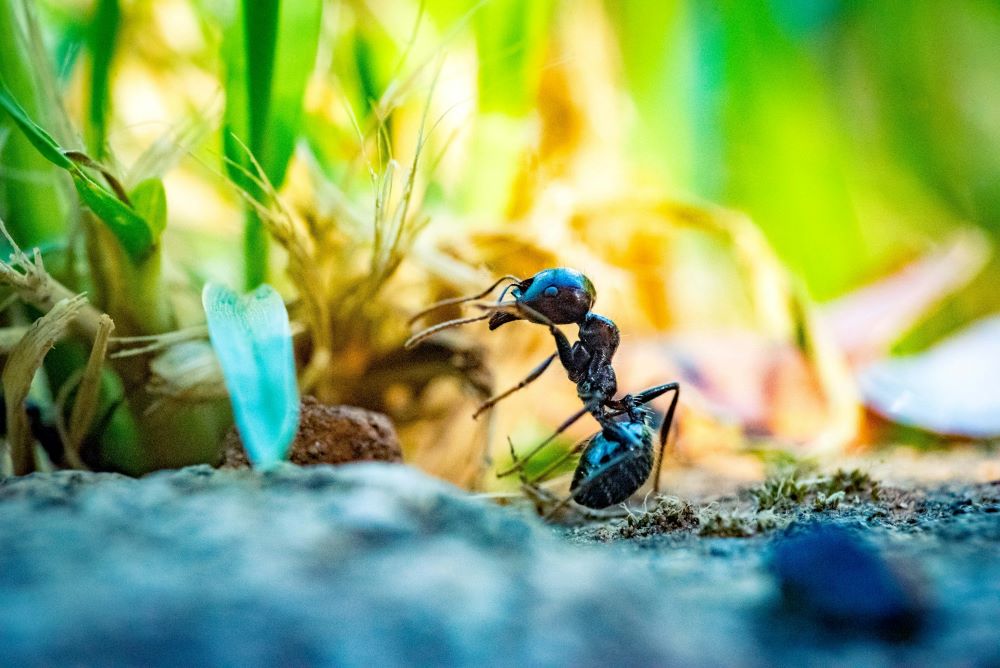
(Unsplash/Guillaume de Germain)
I am reminded of something my Franciscan sister friend says, “God is Godding all of the time!” Life is happening all around me. I am not the center of the universe, but right next to me, below me, above me, members of the nonhuman world are at work doing what we all are trying to do — eat, drink, survive, thrive.
Pondering the ant in its motion I can see that the creature is a subject of its own volition and not simply an object in my landscape. As Thomas Berry profoundly stated, "The universe is a communion of subjects, not a collection of objects." What's in Motion can be an invitation to explore that what's in motion is creation at work as part of a plan greater than my own to-do list.
**********
As we enter into this second week of the Season of Creation, what do you notice as you pay attention to what's in motion? Perhaps you want to experiment with this invitation inside, with your family or in line at a grocery store. What is the life happening around you? As you attune to your senses, where is God present?
Let's be open to surprises together, to see how noticing what is in motion allows us to see God's motion taking place and invites us deeper into our ecological conversion.





